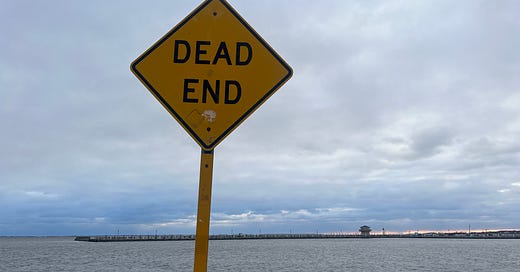I’m sure most of you have heard of Edgar Allan Poe. He was a writer of poems and short stories, mainly of the horror variety. The Raven and A Cask of Amontillado are among his most famous works.
Poe has been described as a genius, a drunk, extremely unphotogenic, and quite frankly, a weirdo. I never knew the man, so I can’t attest to any of those descriptions of him. I can say that he seemed to have a very tumultuous life. He was the first American able to make a living off writing.
Born to a father who abandoned his family and a mother who died soon after, the orphaned Poe was taken in by the wealthy Allan family, who funded his education as he grew older. After a falling out with the Allans, he became a cadet at West Point, which didn’t last long. Eventually he got himself discharged in order to pursue his career in writing.
Said writing career ended when Poe mysteriously showed up delirious at a tavern in Baltimore. He died four days later at the age of forty. The mystery surrounding his death has been a popular subject among Poe fans.

Poe’s lasting legacy has been celebrated ever since. He has been heralded as one of the greatest writers in history. Spinning tales of mystery and macabre, he even created the detective fiction genre. Sherlock Holmes (starring Robert Downey Jr, of course) wouldn’t have been possible had it not been for Poe.
You’d think that such a prolific writer must have shit out at least a handful of novels. But you’d be wrong. Out of all of Poe’s works, in a career that spanned twenty-two years, he wrote but one single novel.
That novel was called, The Narrative of Arthur Gordon Pym of Nantucket. It’s a story about a young man named Arthur Gordon Pym, who boarded the whaling ship Grampus where he lives through a story of shipwreck, mutiny, and murder.
Sounds like your standard seafaring tale, right? Yea, maybe. Maybe I’d even consider reading it one day. Unlikely, though. The book received unfavorable reviews after it came out. Even Poe said it was a silly book.
At this point in the article, you’re probably thinking; why are we even talking about an almost two-hundred-year-old book that wasn’t anything special?
That’s easy. The Narrative of Arthur Gordon Pym of Nantucket contained the most unbelievable prediction in history.
As I said before, the seafaring tale had shipwreck, mutiny, and murder.
I’ll explain:
After the mutiny aboard the Grampus broke out, there were four survivors on the wrecked ship: Arthur Gordon Pym, two other sailors, and Richard Parker, the seventeen-year-old cabin boy.
With no help in sight, the four survivors were starving. At one point they were able to catch and eat a sea turtle, but that only helped quell their hunger for so long.
Richard Parker suggested one of them may need to be sacrificed in order for any of them to have a chance at survival. In accordance with maritime customs, the men drew straws and Richard Parker was killed and eaten.
Sounds like a gruesome incident in a forgettable story. Thankfully it isn’t true… right?
Well, no actually, you can’t give thanks for that either.
The Narrative of Arthur Gordon Pym of Nantucket was published in 1838.
In 1884, The Mignonette set sail from England to Australia. On board the boat were four men: The captain, two mates, and a seventeen-year-old cabin boy.
Mignonette didn’t make it anywhere close to Australia. On July 5th the men had to abandon ship for a small lifeboat 1,600 miles from the coast of Africa.
It was a struggle for survival. The situation was dire. The men were able to catch a sea turtle that kept them going, for a short time. Eventually they decided a crew member needed to be sacrificed for the good of the rest of the men.
On July 25th, the cabin boy was killed and eaten by the three others, who ate his remains for three days, before finally being rescued on July 29th, 1883.
Oh, by the way, that cabin boy’s name was Richard Parker.
That’s right.
Poe wrote a tale about a shipwrecked group of four stranded at sea on a lifeboat. They were able to catch a sea turtle which they ate for survival. Eventually they were left no choice but to kill the seventeen-year-old cabin boy named Richard Parker in order to eat his body and stave off starvation for a little longer. And lo and behold, 46 years after its publication, the exact same thing happened in real life.
Poe called it. It’s completely insane!
Some people say coincidences are just that, coincidences. But come on. This is just… I don’t even know. It’s crazy for one. Totally and utterly crazy. Poor Richard Parker. Both of them, but especially the real one.
Imagine the sheer terror he faced before it was over. With three hungry sailors staring at him like he was a Jamaican beef patty. Yikes.
Look it up if you don’t believe me. It’s true.
What do you think? Was it just some dark twisted coincidence, or something more? How could it be anything other than a crazy and very unfortunate coincidence? Well, that’s easy to explain, too.
In the introduction to this post, I listed a number of ways you could have described Edgar Allan Poe. But I left one out:
Time Traveler.





Reading this recap of an amazing set of circumstances leads me to two thoughts. One is the open-mouthed …uhmmm… strangeness of the story. Even that word is so anemic in its descriptive power. It opens up the reality of the metaphysical world. (Though not for everyone)
As I think on this … whatever this is, I cannot escape the fact that my worldview is so limited. I have little context in which to place this.
The second thing I ponder is a fixture of that worldview of mine. I am a Christian, in pursuit of truth, regardless of where it leads me. In the chase I have found the existence of a Deity to be the best answer given all the evidence. Which means this story must fit somewhere in that. It certainly does not take away from the applied metaphysics of Christianity, though it is not robust in its support of it either. Internally, there is an assumption that God has not revealed to us all his cards. We are left with holes in our understanding that are unfathomable. But, considering the focus of the topic, I am okay with that. What else can I do?